The Corona crisis has hit the whole world hard. One of the more interesting cases is The Netherlands, where the Government has had a relatively relaxed attitude towards the pandemic from late January 2020. This relaxed approach has led to relatively high infection and death rates. But it is also associated with a large number of decisions, opinions, events and outcomes that in an ideal world, and certainly in many other countries, would cause outrage that amounts to a scandal. Still, most people seem to accept the Dutch response as rational and reasonable. For the response to become rational and reasonable, that must change.
First published on July 7th, 2020 by Michael Blok with input from Jaap Stronks, Jorrit Posthuma de Boer, Arnold Niessen, @BarkingDog2020 and many others. Last updated 1Nov21, Sep 3rd 2020, January 23rd 2021, April 20th 2021, May 11th 2021. June 9th 2021.
As a resource for our Platform Containment Now! and the investigative journalists and upstanding citizens of the world, we now present a list of these errors and (potential) scandals. Or at least, what should probably be scandals. We do not offer a full investigation of these scandals, nor do we analyze (fully) why they happened. We do invite curious investigators to speak with us about collaboration to expose the full extent of this complicated and comprehensive disappointment of a Corona response.
We apologize for the perhaps occasionally hyperbolic language. This work is done by volunteers who act out of indignation and concern. We do not try to hide that. But everything we claim is documented fact and inevitable conclusion based on such facts, or informed conjecture when claimed as such.
This is not a fixed page, as time and insight develops we will be refining this list and adding to it, where appropriate. The list is not organized chronologically per se. The items are not investigations, they are invitations to investigate. Upon investigation, it may turn out that in some scandals only few and forgivable mistakes were made, but first we need to investigate to be able to say. The Main actors are Prof. Jaap van Dissel of the RIVM (Dutch CDC), the Outbreak Management Team (OMT) council under Jaap van Dissel, the GGD-GHOR public health federation under Sjaak de Gouw and the regional GGDs (public health units). Please note there is no national Public Health Authority in the Netherlands, and that hospitals and health insurance companies are private and independent. The Health Ministry has a coordinating and regulatory role and tops up the insurance premiums paid by the public.
From April 2021, items are ordered from newly added to added earlier, before April 2021 they are ordered from 1 and up.
Scandal No. 62: Allowing another winter of chaos and collapsed care
As the Summer of 2021 progressed, it became clear that a "zorginfarct" (health care collapse) was either happening or about to happen. After a year of stress, overtime and seeing many people die, too many health care workers are home with a burn out. Others, over 10,000, have left the profession. And of course a good number is sick with Covid or in quarantaine, given high virus circulation in the Netherlands. None of this deterred the Dutch government to keep on spurring infections with "Dansen met Janssen" (see below, Scandal 61) and optimism ("lifting all measures by august", then "lifting all measures by November 1"). This fits with the strategy of aiming for as many infections as possible, as long as the health care sector doesn't put too much political pressure on the caretaker government. As October progressed, political pressure mounted to so something. Morocco and Norway started to tighten travel from the Netherlands. And by October 31st, the ICU doctor federation issued a letter to the government calling for immediate control measures. The government responded by bringing back a few quite modest measures, which fits with the strategy of keeping ICUs nice and full with lots of infections.
Scandal No. 61: Dancing with Janssen (Dansen met Janssen)
As vaccination reached the young in the Summer of 2021, the government came up with a campaign that pretended that protection from vaccination happens immediately after the jab and that one could go and party immediately. Of course, protection takes a few weeks to build up, so this was a blatant lie. Why? The core of the herd immunity strategy is to spur infection in the young ("every infection helps" to control spread of the virus. Summer is a more quiet period and vaccination was proceeding apace, so the government presumably wanted to make sure hospitals weren't too empty in August and September. They got more than they bargained for (see also Scandal 62).
Scandal No. 60: massive conflicts of interest, integrity breaches and blatant corruption
Your browser will translate our eye-popping summary and analysis of the many and massive integrity breaches associated with the Dutch corona response train wreck for you. Quite a few people got rich by abusing their positions of power.
Scandal No. 59: abusing nurses and doctors, to the point of undermining health care long-term
The Dutch push to high infection numbers inevitably caused many people to fall ill with Covid-19. So many were sick that hospitals were overloaded for a total of close to a year in 2020 and 2021. Many were not sent in due to collapsed care, or sent home too early with an oxygen tank. Hospital workers had to work very long hours under great pressure, and saw many people die alone in horrible circumstances. The statistics of the consequences came out on June 9th 2021:
- 54% of HCWs (health care workers) report 3 or more physical and/or mental health issues, due to overwork and stress. 605 have at least one complaint/symptom
- 20% is out due to such complaints, 10% long term
- In 2 years, the percentage of HCWs wanting to quit went from 13% to 25%.
Worse, the inhumane logic of ICU-based "controlled spread" of the virus is that more HCWs means more hospital capacity means more infections allowed before the government pulls the brakes. The noble efforts, under destructive stress levels, of HCWs to save lives have thus enabled a situation of more deaths (which is not the fault of the HCWs, only of the government). That makes the situation of the overworked majority even worse: "I worked myself into a burn-out to try to save society, and now I find out that for every person I saved by treating them the government was able to allow 3 to 5 more deaths?"
Fatal error No. 58: lifting incoming traveler restrictions with new variants coming in and failing to prevent their spread (or spurring them?)
Presumably to protect government favorite KLM and its Schiphol hub, the Netherlands had lax controls on incoming and transit travelers in 2020. This allowed Schiphol to become Europe's biggest airport for a while (usually it's Top 5). As things got out of hand late in 2020, restrictions were brought in. But on June 1st 2021, all flight bans were lifted. A courageous decision with the "Delta" variant, formerly the Indian variant, now present in and around the Netherlands and leading to a new Corona wave in the UK, capable even of overloading the health care system within months.
The rationale given by the government is that quarantine became mandatory on the same day (previously it was "obligatory" and seen as mandatory but not actually mandatory by law). But the mandatory quarantine is not being enforced at Schiphol airport, at land borders or in hotels. In all honesty, even if the government were to enforce quarantine, it wouldn't do much to stop the Delta wave. The country has too many infections and weak testing/tracing to try to stop new variants.
In addition, there is no political will to stop new variants; in fact the government seems to be actively downplaying Delta with false comments such as "10% more infectious than the previous variant" and "not visibly growing in Germany and the Netherlands". When added to the emergency lifting of all control measures in secondary schools on May 31st, a picture emerges of the old Dutch reflex of allowing maximum infections (within hospital capacity) still being alive, as perhaps the welcome mat to new variants: the B117 British variant was deemed useful by RIVM/CDC director Jaap van Dissel to keep other, more deadly and vaccine-resistant, strains at bay. If this is true also for Delta, the risks taken are huge: it seems to be able to fill up hospitals, partly beats all vaccines (especially those with only 1 jab out of 2), and has a 2.7 times higher chance of putting you in hospital.
Scandal No. 57: lifting control measures in secondary schools
As pressure on hospitals began to lighten a bit in late May 2021, and despite the "Very Serious" corona situation in all provinces, the Dutch government wanted to release control measures more quickly than planned. One of the ideas was to lift the 1.5m distancing requirement in secondary schools, which effectively means class sizes are halved and students do 50% distance learning. Education minister Arie Slob decided in cooperation with Parliament to force schools open. A couple of big issues:
- the measure was opposed by all trade unions, whose members are not looking for massive amounts of infections
- ... also because of the lack of preparation for this organizational change only a few weeks before Summer vacations
- Dutch schools are independent, by law, and ministers don't get to say when they close or open. Worse, schools have an absolute duty to be safe and can be sued to smithereens as private entities if teachers or students die or get very sick.
- The OMT Science Council said schools could be opened, IF students do 2 rapid tests every week and if positives quarantine. The minister changed this into "no obligation to test", "if 50% of students test it's OK" and "the OMT is fully in agreement" even though they most certainly aren't (because its conditions are not met)
- Without 1.5m distancing, all students and teachers in a class automatically become contacts in case of a + test. This puts the final exams and even Summer vacations at risk.
The net gain for students in many parts of the Netherlands is 3.5 school days. For that, apart from health issues due to more infections, schools were told 5 days beforehand to change their schedules and class organization, withdraw distance learning, and get ready for lots of quarantined classes and chaos. This makes it safe to say that student wellbeing was not a part of the real reasoning behind this move. The strategy is to have as many infections as hospitals can handle, especially among the young, and that's what they are doing.
Scandal No. 56: Not acknowledging aerosol transmission
Despite the fact that the Dutch government chose the herd immunity "controlled rampage" strategy because transmission was deemed to be largely asymptomatic and thus through aerosols (asymptomatics don't cough!), big efforts were always made to make the public believe that surfaces and spatters contaminate. But even as the WHO finally came around officially in the Spring of 2021, and scientists began saying that aerosols are probably the ONLY method of transmission, the RIVM (Dutch CDC) accepted this only quarter-heartedly. No changes were made to recommendations, and even in June 2021 the guidance was "Wash Your Hands - Keep 1.5m apart - get tested with symptoms" and not "Ventilate - Filter - Mask up".
Scandal No. 55: The shady and unscientific scientific FieldLab program
[Coming soon]
Scandal No. 54: Allowing Eurovision with spectators despite a crisis situation
Rotterdam has the honor of hosting the Eurovision Song Contest in 2021. The decision to allow the event to proceed was fishy, since it means bringing in thousands of people from abroad, mixing them up, and having them return home from the world-leading viral cesspool that is the Netherlands in May 2021. The decision to allow 3,500 spectators on a sequence of nights was even fishier; even with pre-attendance rapid tests and some distancing, infections are more than likely, and so are after-parties. Fishier still was that the event is an official FieldLab event, where large events are allowed to go ahead under the guise of Science-Light, as long as the vulnerable don't attend (this is of course illegal discrimination).
But as April progressed, infections stayed at such a high level that health care collapsed. Hospitals are closing completely temporarily, many are sent home with oxygen tanks, and triage is widespread. The Outbreak Management Team (not known for being careful with Covid) called on FieldLab events to be cancelled. Rotterdam hospitals called on the spectators to be called off, since even mechanical injuries (broken ankles and the like) due to an influx of people would overload hospitals even further. Of course, so would the infections that would result from the events.
Health Minister Hugo de Jonge replied, in so many words: "we can't go back now, it's been so well-organized. How the EBU and its 55 member broadcasters accept such a dangerous event to go ahead in a city with collapsed health care is unclear. They did not respond to our calls to cancel attendance by spectators.
Fishy move No. 53: awarding Van Dissel the Medal of Honor
On may 10th 2021, the Royal Netherlands Academy of Sciences (the club of 550 top scientists in all fields) announced it would award Jaap van Dissel, the Dutch Corona Czar, its bi-annual Medal of Honor. This medal is awarded to those who have "made Dutch Science bloom". An unusual award then for a man who often let politics trump Science and the truth, has misled Parliament and the media, is a global figurehead of the unscientific and inhumane herd immunity sprint strategy, and isn't even acting as a scientist in this crisis (he's a manager, advisor and policy salesman).
The plot thickens when the Academy's motivation is taken into account. Calling Van Dissel an honest broker who stuck to the Science and ignored politics is so far from the truth, even for fans of herd immunity, that it almost looks like signaling "we don't like doing this, but we depend on government money for our underfunded universities so cut us some slack". If the Academy wants to avoid harming its august reputation, it will need to come up with a more coherent and plausible motivation at the ceremony on May 31st.
Scandal No. 52: no effort to vaccinate the undocumented
The Netherlands has a very strict system of population registry. Those who are registered, whether Dutch nationals or foreigners, receive vaccination invitations through the mail. But many people are not registered: undocumented workers, the homeless and those preparing documentation for registration. The central government, in May 2021, said it has no plans to organize vaccinations for these groups on a national level, and points at the GGD local health authorities. Most of these replied that they await guidance and orders from the central government. This creates a situation of uncertainty and differential access to medical care that goes right against the Constitutional principle of equality. Since Corona already hit the poor and minorities hardest before vaccines arrived, this exacerbates unequal health outcomes. Update: in late May 2021, arrangements were made for undocumented people to be vaccinated.
Scandal No. 51: shoddy registration of vaccinations
When the Dutch government said in December 2020 that they would start slowly with vaccinations, the excuse was that this was because they wanted to be diligent and careful (the other EU countries being careless and chaotic, presumably?). Since then, the registration of vaccinations has been in constant turmoil to the level that some international comparisons don't even take the Dutch numbers into account anymore. In April 2020, it became clear that the 5m claimed doses were just an estimate, that about 0.7m million had been overcounted, and that doses not actually put in arms are counted as vaccinations. They're just not sure where about half of vaccinations went. The finger is pointed at GPs, who retort that they often have nowhere to send their data. Pretending to perform well is much easier if the lowish numbers aren't confirmed and can be polished.
Scandal No. 50: undermining vaccination readiness
It has been clear since December that the Dutch authorities are not as interested as one would have thought in vaccinating everybody as fast as possible. In fact, insiders tell us privately and in newspaper articles that jabbing the under-50s is considered a bit of a waste of money, since they "suffer little upon infection" and (we would add if we follow that line of thinking) have mostly been infected already anyway. The Justice Minister proudly said in April that "through well-judged lockdowns" many more people than in other countries had survived the virus, allowing for a more open economy. That makes vaccination less interesting, of course. There could also be some thinking along the lines of "natural immunity is better than vaccine immunity", nature being a word used often by the Dutch CDC Corona Czar Jaap van Dissel. It (un?)fortunately is not true: vaccines are at least as good.
For whatever reason, the Dutch authorities are doing almost nothing to promote vaccination readiness. No media offensive, no door-to-door in less advantaged areas, no advantages for the vaccinated. Lots of bumbling on AstraZeneca also won't have helped the desire to get jabbed. Neither do data leak scandals in the Dutch health authority GGD/GGD-GHOR, unmet promises (Scandal No. 49), or communication to the effect that the young are invulnerable to the virus.
But worse, the authorities are actively undermining vaccination readiness. On April 24th 2021, RIVM (CDC) vaccine director Jaap van Delden said he thinks AstraZeneca is on the way out and that deliveries from mid-May will remain unused. In a situation in which worries about AZ, which the government did little to counter, are leading to many people in their sixties not responding to invites to get vaccinated, this was irresponsible. Every day counts, and any government information that signals "wait a few weeks, we'll get you a better one" will cause unnecessary suffering.
Scandal No. 49: Continuous overpromising and underdelivery on vaccination rates
After the exceptionally slow start of the Dutch vaccination program, which only got underway some 3 weeks after that in other EU countries, Health Minister Hugo de Jonge has made many promises about vaccination rates. As far as we know, no weekly target was ever met. The current target of having vaccinated everyone at least once by July 1st seems optimistic also, but is not too far out of line with other EU countries. Of course, this target is easier to achieve if vaccination readiness is low. This is being eased along by Scandal No. 50: undermining of the vaccination program.
Scandal No. 48: continuing with herd immunity in 2021 after total failure
As control measures are lifted (temporarily?) in the coming weeks, it becomes clear that this winter was much more difficult for the Netherlands than in many other countries. Bars and restaurants will have been shut some 8 months (!!), as are museums and cinemas. Theaters, clubs and soccer stadiums have been closed for well over a year. Other European countries have had it easier, allowing at least some opening of the hospitality industry. The government's hope to be able to reopen society quickly in the Summer of 2020, or at Christmas, or at Easter 2021, have fallen flat. The buildup of people who survived infections has not reduced transmission of the virus, it actually seems to lead to more virus and then more control measures.
This graph plots the average strictness of lockdowns against excess mortality, on average since early 2020 (from Our World in Data). It shows that countries which have suffered few excess deaths (and allowed little virus to circulate) have had LESS stringent lockdowns. The horizontal X-axis shows average excess mortality since early 2020 for a range of countries (the number of dead in excess of what happens in a normal year, and can then be attributed to Covid). The Y-axis plots the average hardness of lockdowns. The (0;25) data point is Taiwan
There is a clear (if only indicative, due to the sample of countries) relationship with how tough control measures have needed to be for countries that let the virus run more freely. Scientists know this, since low infections are easier to maintain after a hard and early application of the brakes and with excellent contact tracing, isolation and lots of testing. A herd immunity strategy requires a high level of virus circulation for a year or more, causing continuous yoyo-lockdowns. And a slow start to control measures, which make it difficult to put the genie back in the bottle later (virus begets virus).
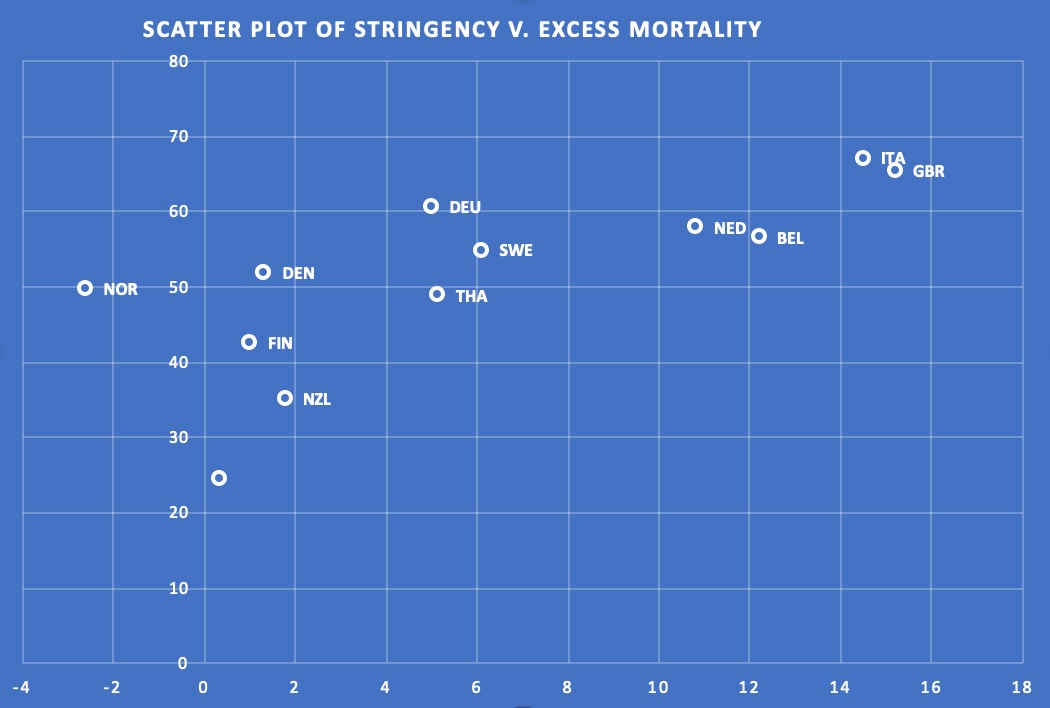
Scandal No. 47: loosening measures with overflowed hospitals
On April 20th 2021, the Government relaxed some control measures even though infections were rising and hospitals were full. The nightly curfew will be lifted and outdoor seating in bars and restaurants will open up, for example. The logic is that society needs more freedom (which will prove temporary) and that accumulated herd immunity (mostly through infection, as has been the plan since March 2020) will relieve pressure on hospitals.
To understand the logic behind the extensive disinformation, non-sequiturs and waffle that characterize the press conferences, the Influenza Playbook and logic of the Dutch authorities focuses almost exclusively on hospital capacity. The deaths and Long Covid that result from infections are treated as inevitable, a sort of sunk cost, but non-Covid sick must get good care. At least, that was the plan until April, since much regular care has already been shut down, including life-saving cancer treatment; relaxing measures will make things much worse unless "herd immunity" and/or vaccination protection reduces the hospital load per infection very substantially.
We warned from late 2020 that vaccination of the elderly would mean a "let it rip" scenario for the rest of us. But we did not predict this would be allowed to such a degree that hospital capacity is overloaded to the extent that extensive triage is necessary, as was the case in the Spring of 2020 and to a lesser extent from October 2020 until April 2021.
Scandal No. 1: No serious attempt at containment
While the Dutch authorities downplayed the incoming virus threat in January and February ("it's like the flu", "there are no direct flights from Wuhan", "human-to-human transmission is unlikely" and "it will be only a few cases") we were also assured by Public Health Federation Director Sjaak de Gouw that we were very well prepared and could ramp up to thousands of contact tracers pretty quickly. But when the virus actually hit the province of North Brabant in late February, it seems there were only a few contact tracers active. No evidence is available that anyone was isolated. Between March 6th and March 12th, containment measures were largely abandoned.
Even if the Government had been asleep at the wheel until about March 1st, it could have ramped up testing, tracing and isolate within days. It could also have locked down a few towns or the entire South (easy due to the limited amount of Meuse and Rhine river crossings, which is the same problem the Romans encountered a long time ago). Carnival could have been canceled, limited or at least its revellers could have been warned about risks. No such containment effort happened. If it had, the Dutch outbreak might have stayed at Danish/Norwegian/German levels, countries in which (partial) containment control was never really lost. Iceland is an example of a country which wasn't really looking for Containment, it just did a lot of testing and thus managed to never lose track of the spread of the virus.
A very revealing account comes from Animal Rights Party MP Eva van Esch. As people started coming back from the late February winter sports vacations, the GGDs refused to test people who clearly had strong Covid systems, because "it was not necessary according to RIVM guidelines". People were asked to stay home but likely infectees were not contacted. At least this person the MP talks about was told not to tell other people about being infected. Of course, none of this makes any sense as part of a serious containment effort. Was the little that was done merely theater?
Scandal No. 2: No return to containment when possible
After containment was given up in early March the Dutch outbreak spun out of control quite badly. Care homes lost many occupants, in some cases more than half. Much evidence exists that hospitals would not have been able to handle the inflow of Covid patients if older and frail patients would not have been turned away even more than usual from early April. Based on excess mortality, the Netherlands is one of the worst-hit countries in Europe.
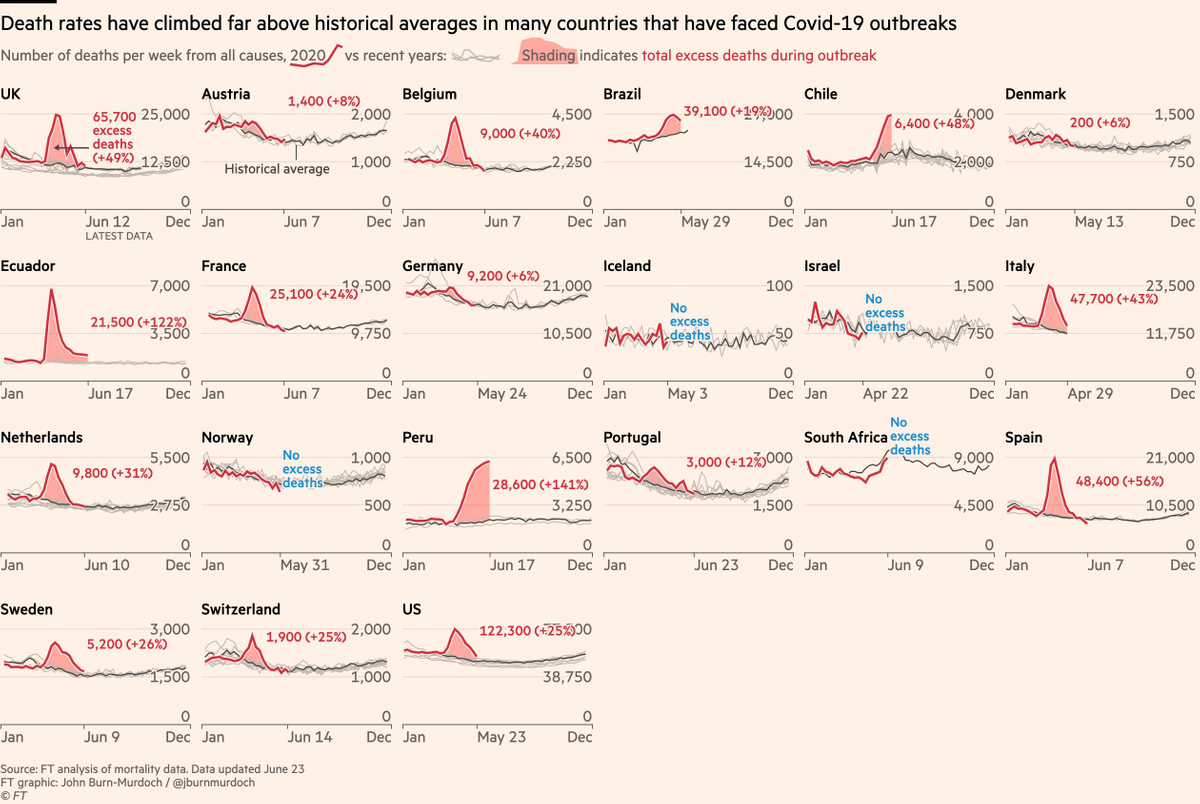
Given such disastrous results, one would expect a return to containment and low infection levels to seem quite attractive. But despite dozens of countries having contained the virus to low or zero levels without too much difficulty, even after having lost control for a while, the Dutch authorities have not chosen to take that route. Why? The dominance of the Flu Playbook, arrogance, Cost Utility Analysis thinking, uncritical media, and a morally and intellectually weak Prime Minister all play a role.
Scandal No. 3: Questionable information about the Science
The Covid pandemic has been one long list of remarkable statements on the Science from the RIVM, the Dutch CDC. All of these statements were unusual, controversial or just plain wrong when they were uttered.
- It's just like the flu (January)
- When it comes, it will stay small (January)
- Not contagious from human to human (January)
- Carnival is celebrated in small groups and not dangerous (February)
- Transmission is all or mostly by people with complaints (February-today)
- Children suffer hardly or any ill effects from the virus (March-today)
- Children do not transmit the virus (March-today)
- Masks are not useful and offer a false sense of security (March-today)
- Transmission is through droplets, not also airborne (until today)
It is hard to believe that so many unwelcome statements would be mistakes or just a different view. The easier explanation is that most served to rationalize the mitigation/herd immunity policy, either within the brain of decision makers or between them and the public. In Dutch, we have summarized the nonsense and disinformation coming out of the RIVM (Dutch CDC).
Scandal No. 4: Misleading information about policy and measures
We can leave most of the explaining to this article, a breezy read about the massive disinformation campaign of and by the authorities.
On July 11th, a former RIVM Director claimed that the contagiousness of asymptomatic infectees is hidden by the authorities: "You can also transmit if you have no symptoms. Somehow that is more or less kept secret or denied".
Fatal Error No. 5: Debilitating Public Health Budget Cuts
The Netherlands had a reputation for being well-prepared for this pandemic. This has turned out to be at best a partial truth. There has been a lack of urgency, a casual attitude in general to disease, and there's also the spread-out responsibility of the health care system (which is basically a regulated private system rather than the public system of most other European countries).
All of this led to the regional Public Health units (GGDs) having had their pandemic response capabilities reduced greatly by budget cuts. Few doctors and other specialists remained who know how to organize large emergency projects, carry out contact and source tracing or isolate people remained within the GGDs when the pandemic hit.
But the arrow also points the other way: the very elaborate and professional Dutch Respiratory Disease Playbook seems to have taken on a role of itself, determining and leading the Corona response without being an actual human. This has made course changes more unlikely, spread out responsibility and perhaps made it more difficult for a leader to say "we're not doing this crazy stuff". In any case, there is a suspicious correlation with high scores in this GHS index and bad Corona performance.
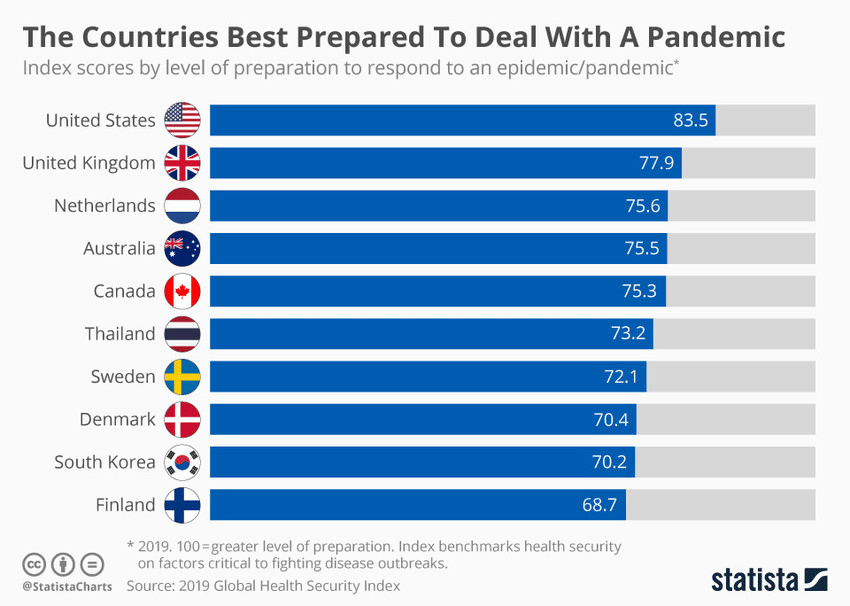
Fatal Error No. 6: Lack of strategic supplies and local production
Given the lack of a real top-down integrated health care system, the Netherlands did not have a pandemic unit standing by in early 2020. There were no strategic supplies of PPE or medicines. Little or no local European production had been provided for in terms of key medicines (antibiotics, antivirals, immune suppressants) and materials (masks, gloves, ventilators). Vaccine production was privatized in 2010 and even as the Corona pandemic unfolded in March and April the Government was still working to privatize vaccine research. After this caused an uproar, the plan was shelved.
Fatal Error No. 7: Lack of testing materials
As the need to do lots of testing became apparent in the second half of February, the Netherlands seems to have failed to place orders for various testing components. Whether this was due to outmaneuvering by other governments, or because a mitigation/herd immunity strategy doesn't require much testing, is not clear. There is talk of the 16 February ECDC meeting, in which almost all governments downplayed the risks from Covid-19, having been a bit of theater for some Governments which had already made contingency plans to order testing materials quickly.
Whether the Dutch Government was then more (Herd Immunity) or in fact less (lazy ordering) cynical than our European friends is not clear. It is also not clear to what degree a lack of tests informed the Herd Immunity policy. What is clear is that even to this day, the Dutch Government is testing little, even as testing capacity is now much higher than in March.
Scandal No. 8: Treating the media and population like mushrooms
In March, the WOB (Public Record Transparency Law) was suspended with respect to the pandemic, making it very difficult for media and the public to extract information about decision making, including the much-desired minority opinions on the Outbreak Management Team. Keep 'em in the dark and feed 'em sh*t, just like mushrooms.
An article about us was published online by the AD newspaper, but removed a few hours later from the website. It later turned out the RIVM had given the AD a call.
On July 6th, a state TV news service summarized an interview with Aura Timen, the number 2 of the Outbreak Management Team, as "the RIVM underestimated the epidemic in late February". Within 14 minutes, this became "Europe underestimated the epidemic". It is no longer conspiracy thinking to assume a call was made.
Multiple accounts have reached our action group that pro-suppression scientists were not invited to, or disinvited from, TV shows after government pressure. We have also been told that our action group was denied attention after a TV show called the RIVM and were told our position of containment was scientifically impossible.
Scandal No. 9: Loyal and uncritical media
The before scandal was compounded by our discovery that the editor of the Volkskrant newspaper said on radio on March 19th he would not be publishing critiques of the Government's policy. There was some discussion in the media and Parliament in February about the best approach to deal with the pandemic. But around the time containment was officially shut down around March 10th, all such discussion stopped. Our platform's collaborators have offered many op-ed articles (good ones) to major newspapers, but were never published there.
In June, the editor of the Telegraaf newspaper confirmed having received a request from the Government to keep criticism of the policy to a minimum. Now, a bit of alignment of policy in a giant crisis is OK, but not if the policy is different from what other European countries are doing. In that case, criticism is warranted and necessary. As they say, journalism that doesn't challenge power is just propaganda.
Scandal No. 10: Testing, or lack of it
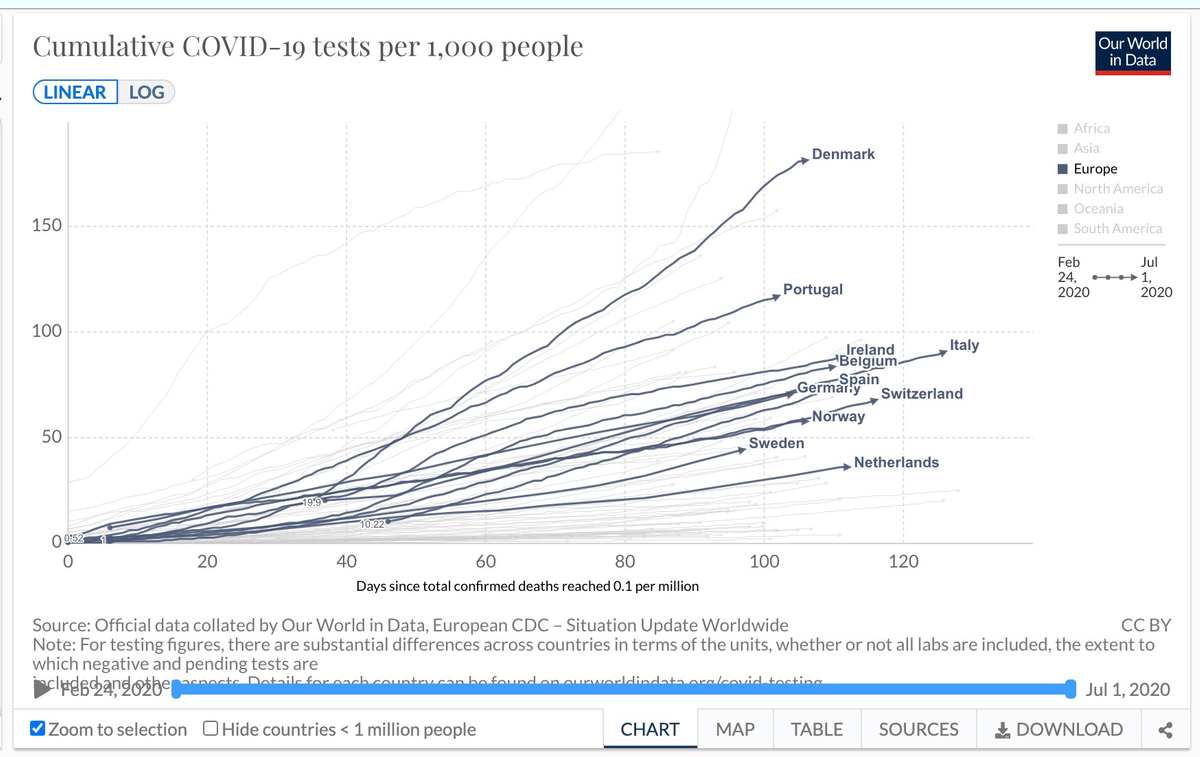
The Netherlands lead Europe in not having done much testing. This has been bothering many people and MPs, who would like some control over the virus. There were some motions in Parliament about doing more testing, some public pressure, and some media attention. The government responded throughout April and May by promising more testing capacity. In fact, the increased testing was not happening. It serves no purpose in a Mitigation strategy of allowing the virus to spread, but not too fast.
Only on June 1 did an increased testing regime start off. But even in July, testing is in the range of 10,000 per day (17m population). Basically no proactive testing is happening, very little research is done. And only people with symptoms are allowed to be tested, children are discouraged from being tested.
Even into August, the argument of "shortages" of tests kept on coming up. In Dutch, a full review.
Scandal No. 11: Schools and children
The Government never intended for the schools to close. By March 12th, parents were starting to keep their kids home and your servant helped turn the government's "we have to keep them open as child care for essential workers" around into "that means there's no more mandatory schooling". Schools didn't open again on Monday the 15th. By mid-April, the Government was very eager to reopen schools, and used the arguments that kids don't suffer much from a Corona infection (probably mostly true) and that they are not significantly contagious (no way of knowing, but the default is that they are as much as bigger humans).
Despite protestations and a Parliamentary motion followed by government promises, schools closed for the Summer in July without a proactive testing regime in place. Schools are not closed in the case of infection of teachers or pupils. Classes were halved in mid-May but by mid-June primary schooling was pretty much back to normal. By early July, child care facilities were told to allow children with Covid symptoms to continue to attend. August will bring secondary schools back without any real restrictions.
All of this comes down to a giant medical experiment on a part of the population. It is not certain that children suffer little when infected. The virus may linger in the brain, there's Kawasaki syndrome, and a host of other afflictions that kids with Covid seem to suffer from. What if it's not one in a thousand but 1% or even 10% that suffer real consequences to their health? And what about their teachers and parents? Kids are certainly infectious, probably significantly so.
On July 16th, reports came in that one third of children tested in Florida came up positive. How much infection has been building up among Dutch children? How much health damage will that cause, and how much infection in other age groups? Check out our Dossier Safe Schools and Kids.
Scandal No. 12: Masks
Masks are very important in controlling the epidemic. All countries that do well, use them in public (indoor) spaces. The RIVM pioneered research in this field. Masks are a cheap intervention, too. But masks have been discouraged in the Netherlands since March. There was the argument of lack of efficacy, then of "a false sense of security" (masks actually make people more careful), then they were supposedly not available in world markets. But home-made masks, tea towels even, can be a big help. When the public transportation sector forced the Government to adopt a mask mandate in trains and buses, the Dutch population found themselves in a situation where masks are both discouraged, mandatory, and forbidden (because of the face covering laws against Muslim women).
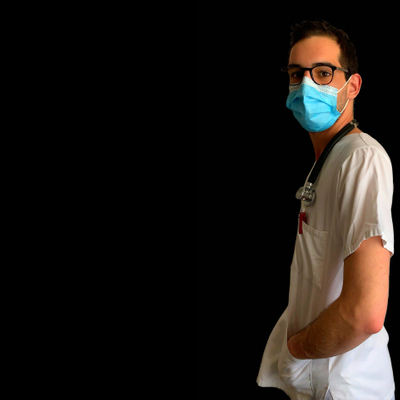
How did the RIVM decide their own research about mask effectiveness is bunk? Or why did they say it is? Is it as simple as the fact that masks are too effective if you want the virus to spread? A full review in Dutch is found here.
Scandal No. 13: Inactive municipalities
The Dutch WPG (Public Health Law) makes the GGDs responsible for outbreak management in their territories. Contact tracing is mandatory and the law gives broad powers to control outbreaks of dangerous pathogens. But except for the North of the country, all GGDs have been following RIVM guidelines (advice, not commands) punctually. Only in three municpalities were questions even raised about allowing the virus to spread. Only in Amsterdam was a motion filed by the left-wing BIJ1 party in the City Council to scale up testing, tracing and isolation and try to suppress the virus. The other parties would not hear of it.
The Public Health Minister does have the right to take some centralizing measures in a major pandemic, but his command to stop reporting confirmed cases to local GGDs in mid-March was not an official ministerial decision, so appears to lack a legal foundation. Municipalities should have done what they needed to do, although in their defense they do not have much disposable cash after many budget cuts and centralizations in recent years.
Mayors of larger cities caucus in a kind of "super mayor conference" which has quite a lot of influence over corona policy, since it effectively creates local ordinances on social distancing and the police. Not once has any dissent been heard from this commission. Not even about regionalization, which fits the model and would have perhaps mostly stopped Covid from coming to the main Randstad conurbation at all (by closing off the South for a while and keeping up contact tracing, testing and isolation).
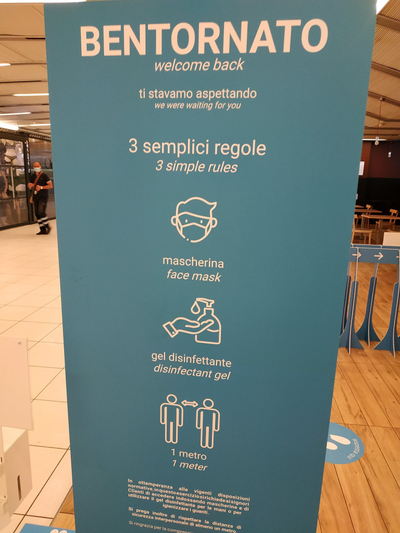
Scandal No. 14: Bad crisis management
The Government not only got its preparation and strategy wrong, but also the execution. When it became clear in April that the GGDs would need to do a lot more testing, tracing and isolation from May, the GGDs were left in the dark for weeks about what was expected of them, the how, the protocols, the who, where the money would come from etc. The government spent its energy on a Corona Tracking App which could never have achieved results on its own and which was a doomed project in such a time frame and without collaborating with projects in other countries (or just taking their functioning app).
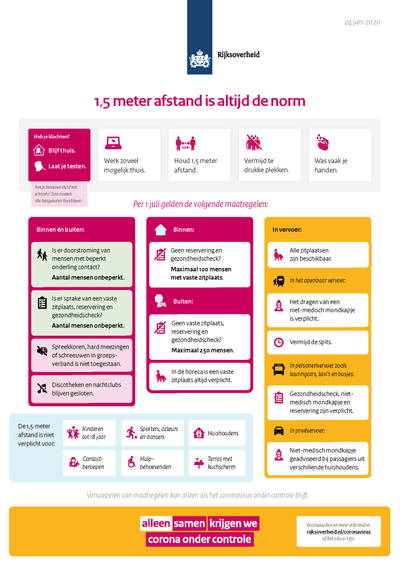
The measures that were introduced and the behavior expected of the populace were usually difficult to grasp, and even lawyers could not figure out the forest for the trees. Something as simple as "when indoors, wear a mask, keep a meter distance and clean your hands" was never introduced.
Scandal No. 15: Little responsibility or accountability
The key player in the Dutch Corona saga is RIVM Infectious Disease Unit head Jaap van Dissel. He is:
- Main advisor to the Government
- Constituted the Outbreak Management Team when the pandemic arrived
- Heads the Outbreak Management Team
- Sets guidelines for the GGDs (which are treated as commands)
- Defends Government policy in Parliament and in the media
- Is the key figure in framing masks as "false security" and therefore undesirable
Van Dissel largely makes the policy, presents it, defends it, monitors it and details it for the lower ranks of Government. He is good friends with Sjaak de Gouw who heads the GGD-GHOR, the federation of GGDs (Regional Public Health Units). When the Herd Immunity strategy which Van Dissel and De Gouw are vehement fans of became less of a thing in April, these two men were the chain of command between the Government and the GGDs which were supposed to work hard on at least partial containment. It is no surprise that what came out was the world's first attempt at TTI that was not designed to contain, but mitigate the outbreak at a sort of stable level.
When the Outbreak Management Team expressed its desire on June 23rd to aim to move towards zero infections, the architects of the ruinous Herd Immunity strategy and lacklustre containment measures (Van Dissel and De Gouw) were left in place. This signals that if they fall, they all fall. And so the guys who broke it get to fix it, with not guarantee they'll try hard.
Atonement for all the mistakes? We haven't heard much more than "we underestimated, as Europe, the virus in February". You cannot (no seriously, you cannot) change such a clear Herd Immunity strategy into something much more contained without even acknowledging the change of policy. This is a matter of democratic principle. But the best the authorities can do is claim that "containment" was always part of the "maximum control" strategy which was supposed to be about controlled spread and herd immunity.
Another point of note is that the GGDs (G=municipality) are no longer run by their City Councils, but have merged into regional Public Health Units which are commanded by the mayor of the largest city in that region. How this is supposed to ensure democratic control is unclear, because the Super Mayor isn't even very answerable to his/her own council about police, public order and public health decisions, let alone to the other municipalities in the region.
Scandal No. 16: Concentration and abuse of power
Apart from the fuzzy responsibilities and lack of accountability of the previous scandal, it appears the Van Dissel/De Gouw tandem (RIVM and GGD-GHOR, CDC and Public Health Unit Federation) have concentrated power in their own hands. Testing was concentrated in the hands of the academic hospital laboratories whose directors form an influential part of the Outbreak Management Team.
Despite the urgency of ramping up TTI in April and May, the choice was made to not work with outside experts such as Arnold Bosman, who had a team of thousands of tracers ready. For contact tracing, an outside call center was used from June 1st. Regional GGDs were not expected to come up with their own locally-adapted policies and approaches, even though the Law makes them responsible for doing exactly that. The Public Health machine was run from RIVM with guidelines which had the effect of commands.
On June 25th, two testing laboratories sued the government for abuse of power. A Dutch and a German laboratory claim they were falsely kept out of the Corona testing system.
The Outbreak Management Team was apparently selected by Van Dissel and contained only doctors, mostly microbiology, many of them attached to the diagnostic labs that are monopolizing Corona testing.
Scandal No. 17: Conflicts of interest
The OMT is composed largely of microbiologists who do research in their hospitals on Covid and similar diseases. Such research depends on having infected people to study, as was explained multiple times by OMT member Marc Bonten of Utrecht University MC on radio and TV. This gives these people, who effectively decide on Dutch Corona policy, an incentive to choose a policy that allows infection to persist. Such interests were never declared.
Another interesting situation revolves around the Sanquin organization. This is the non-profit national blood bank, tasked with collecting blood from recovered Covid patients from which antibodies can be extracted which, in turn, may serve as a medicine for "new" Covid patients. So far, so good. But Sanquin has a for-profit subsidiary SPP which sells that product. In 2019, this company lost half of its revenues after Takeda pulled its business, putting the whole Sanquin organization at risk, and therefore the blood supply hospitals depend on. That same Takeda is now in the market for antibodies.
As infections tended down in May and June, the government offered a 10 million euro subsidy to Sanquin to try to convince more ex-Covid patients to donate blood, and signals arrived there was a race against the clock before infections run out. Mixing profit-seeking with government roles and an incentive to maintain infections which was not declared or talked about: not the best way to organize things, perhaps.
In addition, Corona testing in the Netherlands is being carried out in a limited number of labs. Members of that "cartel" are very prominent in the Outbreak Management Team.
Scandal No. 18: Bad decision making frameworks
The RIVM used SEIR models for their pandemic response modeling. These are outdated and biased away from containment with TTI and towards assuming Herd Immunity caused the Wuhan outbreak to die down. Our excellent article provides the details.
The OMT is dominated by medical doctors and hospital directors, who effectively decide policy for the Government and thus for society: health care bosses determining societal response, or to put it differently, a health care system putting the focus on defending itself (stop hospitals overflowing) and thinking using its own narrow treatment cost effectiveness frameworks without adequate regard for the economy, civil rights and health damages outside of hospitals.
Scandal No. 19 : Inaction by the Inspectorate IGJ
The IGJ (Inspectorate for Health Care and Youth Care) is responsible for regulating the quality of, among others, epidemic response efforts by GGDs. Despite many calls from activists, the IGJ has been invisible in the public sphere since the outbreak started. Only in late June did the IGJ seem to be working on something as it started to invite public input into its inspection and regulation framework. Since a great many things went wrong in and around the GGDs and TTI, an active IGJ would have been very welcome. Was it active? Then why did it not let us know? If is was inactive, why did it decide not to act?
On July 16th, IGJ finally published a regulatory framework for test-trace-isolate. No visible action has been taken since then.
Scandal No. 20: Ignoring health damage outside of hospitals
if you don't look, and if not looking gives you a sense of control, then you won't find. The Dutch authorities define non-hospitalized survivors of Covid-19 as "mild cases". This is part of the "Maximum Control" strategy which puts the brakes on the outbreak if ICUs start to be at risk of overflowing: if you don't need hospital admission (given that it's a "pretty harmless virus"), the Government doesn't count you as a societal cost.
But Covid is a dangerous virus. We don't know yet what percentage of infectees develop serious symptoms, but estimates are of between 10% and 95% of survivors suffering months, years of damage or even permanent damage. Lung scarring, nervous system damage, loss of smell, ME, arterial and heart damage have all been named. If such complications were one in a million, then life is hard, but that doesn't seem to be the case.
We need more research into long term damage and we need to apply the precautionary principle until we know that damage is very low in almost all cases that don't die from Covid-19. If not, we run the risk (with short-lived immunity and controlled spread) that we are essentially wearing down the population, which may get re-infected multiple times and suffer more damage every time.
Scandal No. 21: The care homes
How care homes went unmonitored and unprotected, how its inhabitants were rarely taken to hospital and deprived of oxygen as they lay dying of asphyxiation, in at least some cases.
Scandal No. 22: The vulnerable
How can a policy effectively lead to the years-long isolation of perhaps as much as a million people in risk groups (over 75s, diabetics, people with cancer, etc.)? Depending on infection levels in the community at a given time, groups of at-risk people will need to quarantine themselves completely, avoid indoor spaces, wear a respirator mask, or simply decide to accept a certain risk of infection. The average infection fatality ratio is about 0.7%, but if you're an overweight, 74-year old cancer survivor, the risk of dying or ending up in a wheelchair can be well over 10%, 20% or even higher.
Humans prefer to stay alive, but perhaps not at the cost of giving up their social lives, which are of course key to our well-being. Is it reasonable to make a million or more people restrict their movements for years if containment of the outbreak is feasible and not overly expensive? Would this be accepted if the same risk applied to our most productive citizens, forcing them to stay away from others?
Fatal error No. 23: Meat industry
How were unsafe conditions in the meat industry ignored, despite being reported to the relevant authorities?How are foreign and poorly paid workers protected against working in enclosed, cold, busy spaces with a lot of suspended aerosols, under strong pressure to go to work even with Covid sympoms? How much of an impact does that have on community transmission of the virus?
Scandal No. 24: Herd Immunity
How on Earth did Herd Immunity through controlled exposure as a policy goal come into being? Who came up with the yoyo-lockdown concept and why? Why was such this key goal later denied by all? What is the link with the Brits, Swedes and Fins who also went down this road, using the same arguments and speaking the same language?
Scandal No. 25: Legality
Allowing controlled exposure of a dangerous virus is not in accordance with the WPG public health law or with international treaties. Allowing 60-80% of the population to be infected amounts to claiming ownership of their bodies for a policy goal. The policy also ruins the economy through permanent fear of the virus. This presumably goes against the rights to Life, Safety, Bodily Integrity and Work. It also appears the Medical Experimentation Law WME has been disrespected, as the subjects of this giant medical experiment have not been notified or given the option of not participating.
Scandal No. 26: The parliamentary deal
There is strong reason to believe that the Government made an explicit deal with the entire opposition (or at least the non-governing democratic parties) to not criticize the Corona strategy in at least March and April. What seems to have happened is that around March 6th, discussions started between the government and MPs. There was room for input, but the condition was that the chosen strategy would not be challenged. And indeed, the criticism that was regularly heard in Parliament in February of the relaxed attitude to the incoming pandemic died down completely in in mid-March. Not even Prime Minister Rutte's highly disappointing National Address on Herd Immunity on March 16th led to criticism. Only in May did some gentle criticism become visible in Parliament, as the left-wing opposition started mumbling about containment and complaining about propaganda.
Now, we don't mind a government lying and making shady deals in such a giant crisis. We might not even mind the media falling in line by accommodating propaganda and marginalizing opposing voices. But those responsible have a lot to answer for if it's in the service of a crazy herd immunity strategy that kills a lot of people and jobs.
Scandal No. 27: Code Black in Hospitals, which did overflow bigly
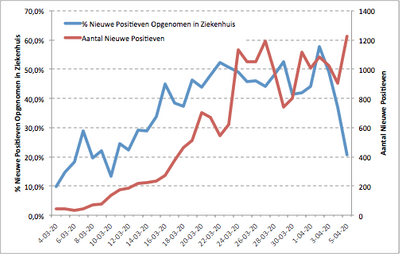
Contrary to what the media reported, Dutch hospitals DID overflow in April. The scenes that were seen in Italy of hospital wards overflowing with patients would have been much worse in the Netherlands, if not for a few useful customs and interventions.
Look at this graph showing true IC requirements (Daadwerkelijke IC-behoefte) which grows in tandem with actual hospital admissions (Aantal ziekenhuisopnames). But then in early April the number of people actually in ICU wards stabilizes suddenly, and suspiciously close to actual "surge" capacity of about 1,400 Covid beds. Please note that already in March hospitals were keeping patients away from ICUs to some extent to make room for Covid patients. From April hospitals were effectively closed for non-urgent care, which also had a "masking" effect that made hospital load numbers look better.
Now look at the following chart, based on an analysis by Chemical Engineer Jorrit Posthuma de Boer, part of our team. The data points are week numbers. Suddenly after week 13 (early April), the probability of ending up in hospital for a given number of infections falls dramatically, by a factor of 4 (four).
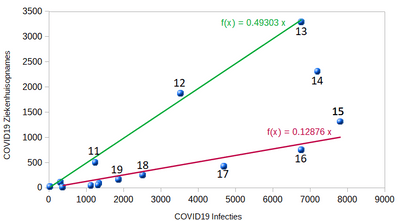
If all patients had made it to hospital who would under "peacetime" have made it to hospital, then significant overflow would have happened. And these "peacetime" policies already restrict the access of (older/frail) patients to hospitals. So the real overflow was even greater, if measured by the standards of most health care systems.

Another interesting article published in the Trouw newspaper shows that the age distribution of ICE admittees feel significantly in the first half of April. In plan English: the old were no longer getting in as before to make way for the young. The article also mentions the surprising peak of ICU load on April 9th, where a further inrease had been forecast to as much as 2,500 ICU beds. We can only assume the "convince the old that it's no use to go to hospital" missive that went out to GPs on March 27th worked better than planned, as perhaps did compliance with social distancing measures beyond what the government had assumed.
The third image shows how suddenly in early April the number (Aantal) of new positives stayed high, but hospital admissions (opgenomen in ziekenhuis) fell. A lot.
The early April change in hospital admission probability also coincided with the NVIC (national association of IC doctors) stopping with daily ICU covid numbers publication on their website. The NICE foundation website was referred to from then on, but they had considerably smaller numbers. Extrapolating the NVIC numbers, we would have seen a large overflow of hospitals. Were the hospitals more full than we were told? It certainly seems so.
The analysis points to a clear conclusion: as hospitals started to overflow, GPs were asked to reduce the inflow. They did this by discouraging the elderly and "frail" from making the trip to hospital. And they did this very effectively. In addtion, a lot of anecdotal evidence suggests care homes and ambulances were not taking old people with Covid symptoms to hospitals. There is no reason to believe hospitals stopped existing Covid inpatients from going to the ICU; it sufficed to stop hospital inflow.
Scandal No. 28: The role of hospitals, GPs and other doctors
In astounding news for the whole planet, Dutch hospitals have a no-mask policy. Only personnel in Covid wards wear PPE. Other wards and departments are free of masks. The reasoning behind this is very revealing, and revealed by an Amsterdam UMC explanatory video: "We can stay 1.5m away from each other, even when we treat you. We test our people when they get sick". This fits with key observations about the Dutch medical establishment, true before the pandemic but even more so now:
- The virus is not seen as very dangerous: not too many people die, and sickness outside of hospitals is largely ignored
- The ability to pass the virus to others when you don't even know you're sick is denied (or shared as a convenient mitigation-enabling lie)
- The risk of getting infected in small rooms with stagnant or recycled air is (aerosols) is denied
- Doctors see the pandemic as a health care issue (keeping or making one person healthy), denying the enormous external effects of other people getting sick, and for the economy. They don't know or accept that society needs to suppress the virus, and that hospitals are prime vectors for transmission, instead focusing on "it's a low risk you will get it, and when you do it's not so bad"
(Some) GPs seem to be discouraging their patients from getting tested, which does not take into account Public Health considerations and interests.
Dutch GPs do not regularly keep track of Covid patients when they're home. In Germany the GPs do actively monitor and treat Covid patients.
The GPs were also instrumental in restricting the inflow into hospitals in April, by responding to a centralized request to discuss with their older and frail patients the pros and cons of going to hospital if Covid arose.
Scandal No. 29: Abuse of trust of a medical professional
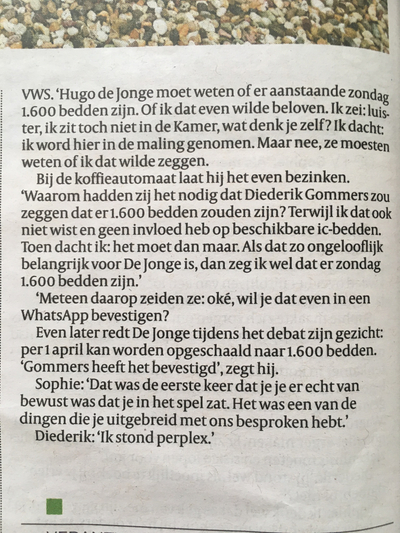
On July 10th. in an interview with the major Volkskrant paper, national ICU capacity coordinator Diederik Gommers recounted the days in April when hospital capacity ran out. He claims to have been put under pressure to write health minister Hugo de Jonge a Whatsapp message confirming there would be 1,600 ICU beds available by Sunday. Gommers did not know whether this was the case, and he had no influence on the amount of beds, but he sent the message which was used minutes later by De Jonge in Parliament to claim adequate ICU capacity was available. "I was being taken for a ride. I stood perplexed", claims Gommers.
This event is part of the gap between the official history (we just managed to save the hospitals) and reality (the hospitals continued to admit younger patients, but were effectively closed to the elderly and frail who were encouraged to believe it was better to die than suffer after perhaps surviving ICU care).
Scandal No. 30: A non-independent independent commission
After much political wrangling, Parliament approved a motion to ask the government to instigate an independent in-action review on the Corona response in the Netherlands. This will require an independent commission, expert and/or consultant. However, on July 12th the government announced that Marije van Schaik would become the "quartermaster" for the commission, with the role of selecting members and setting goals and procedures. However, Ms Van Schaik is a "spin doctor" for the CDA political party of the Health Minister Hugo de Jonge. She even supported him in July's CDA leadership election.
Not a very auspicious start for an independent review. A sub-scandal is how this parliamentary motion came to be, allowing a government that made so many mistakes to organize a very light and managed review of its performance.
Scandal No. 31: Protection of (health) care workers
Health Care workers are essential in a pandemic, and deserve to work safely. On July 16th, the Nieuwsuur show on Dutch public TV reported in a very revealing long item on how health care workers came to work with so little protection. Many became infected, some died. The lack of PPE was initially claimed to be a problem of scarcity, which begged the question why people weren't allowed to reuse masks, why hospitals did get masks and respirators, and why other countries did manage to secure supplies.
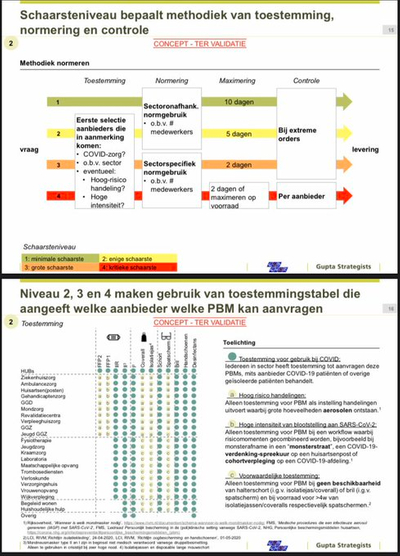
On July 16th it was revealed that the rules, which emanated from RIVM, were in fact written up by its Infectious Disease Unit director Jaap van Dissel based on his "experience". The entire sector had assumed the rules had been developed based on sound Science and much deep thinking of a broad range of experts. In any case, they didn't work.
On July 17th, the Nieuwsuur show revealed that scarcity of materials (within the health care sector) did play a role in allocation of PPE (causing people to work without adequate protection). The ministry claimed that played no role. Interestingly, there is no proof that there was a shortage on the market, so this is about internal processes within the sector. Jos de Blok, head of a care home organization, claims the actions by the government increased scarcity and that common-sense ways ot increasing the supply of PPE were ignored.
So either it's a scandal that the materials were not provided because of artifical scarcity, or because (as the government claims) there really was no necessity in their opinion, or both.
Another sub-scandal is how the "ICU-managed" mitigation strategy came down to health care workers indirectly causing death. The more ICU beds and doctors/nurses are available, the more infection the government would allow, and thus also the more death. This is especially true since in the Netherlands most Covid-deaths are outside of hospital. So even if a doctor saves one life, multiple other lives are indirectly lost. Doctors did not become doctors to play such a perverted role in a Herd Immunity strategy.
Another sub-scandal is that the doctors and nurses are put at great risk in a mitigation scenario. They never chose to sustain such risks. And since the risks are avoidable with a containment strategy, and considering also the previous point, a crude way of putting it is that doctors were selected to operate "meat grinders" at considerable personal risk.
Scandal No. 32: The game of responsibility musical chairs
(Health) care workers had not been protected enough during their work in care homes and the homes of their patients/clients, causing much disease and death (Scandal 31). The entire health care sector had been following the "Richtlijnen" of the RIVM (Dutch CDC) on when, where and how to use PPE. Now, "richtlijn" can mean "guideline" (advice) as well "protocol"/"command". The richtlijnen were treated as commands, and had been intended that way, as the minister himself admitted. But when it turned out the guidelines were inadequate, the government said the richtlijnen were merely advice.
We await how the GGDs and the minister will respond when it turns out the GGDs theoretically also had the power to contain the virus in their respective regions, and that many unfortunate choices were made.
Schools, amusement parks and many other types of organizations also treat the RIVM "richtlijnen" as law. But when a restaurant gets sued over wrongul death, we can be sure the RIVM will not be held criminally responsible. Such a blurring of advice and command, advice and policy, and advice and management, is of course not best practice governance.
Scandal No. 33: Allowing people to die without oxygen
Scandal No. 27 is that many were effectively banned from going to hospital, usually choosing to stay home under light or strong pressure. Multiple anecdotal stories have emerged that people spent their last hours and days without supplemental oxygen, meaning they died lonely and short of breath, in many cases gasping for breath as care workers watched helplessly. Some might argue that morphine can alleviate the anguish of shortness of breath, but no-one can claim that oxygen can't make people feel better. When Swedish family doctor Jon Tallinger found out many patients died away from hospitals without oxygen, he became an advocate for a more humane Covid policy in Sweden. So at least one doctor finds this practice barbaric.
It is now clear that those staying home while terminally ill were denied oxygen in many cases as a matter of policy in the Netherlands as well. A small group of home patients is allowed to get supplemental oxygen, but only if there is a chance of recovery. Now, medical professionals tell us that giving oxygen is not always helpful in a terminal situation, but when oxygen saturation is low, it is. And low oxygen saturation is a very common symptom of Covid-19. This means we can safely assume that many if not most of the 10,000-odd Covid deaths in the Netherlands died while being short of oxygen, or at least feeling as if they do.
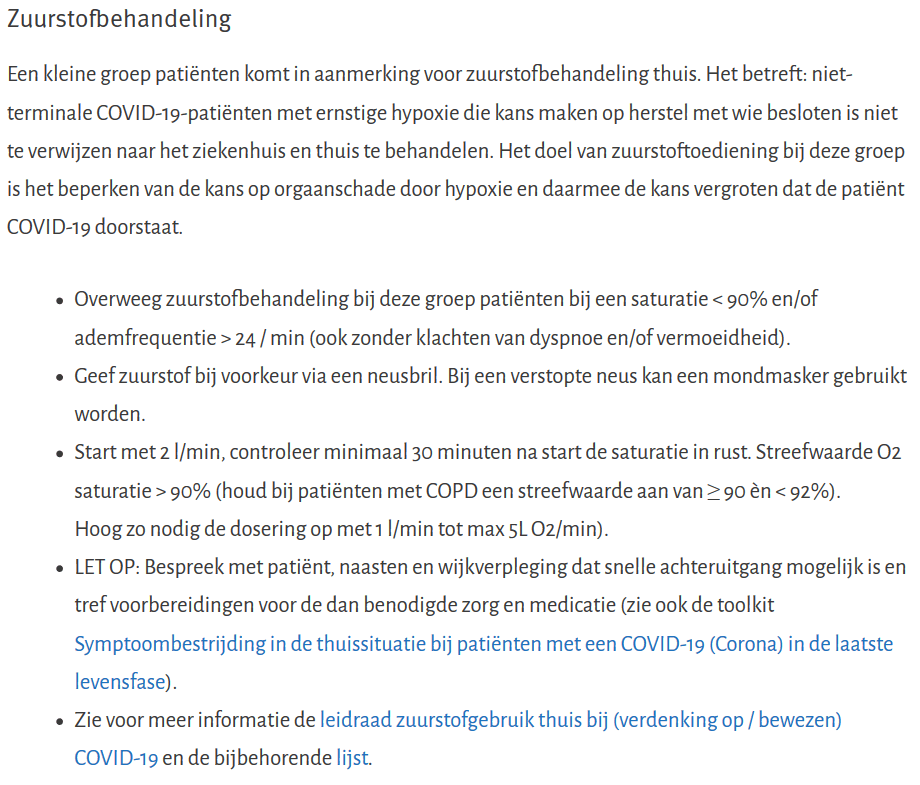
The text above comes from the website of the NHG Dutch Association of GPs. It's still current at the time of writing (July 19th), so this is still going on as deaths still happen daily in the Netherlands.
Scandal No. 34: depriving people of care because of their age
In July we uncovered documentation that proved people 70 and over were denied care, simply because of their age. The government said this never happened.
Scandal No. 35: Failing to Act in July when the second uptick was upon us
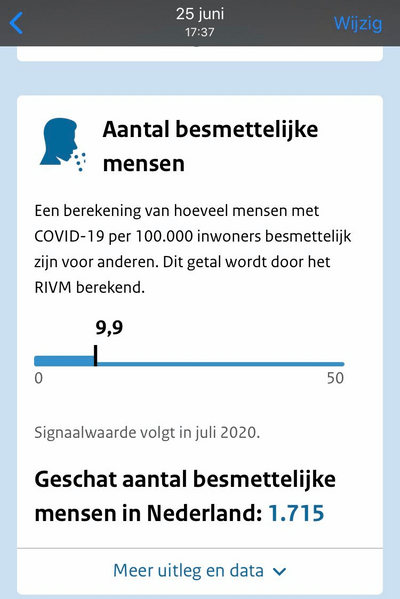
Almost immediately after the last control measures (apart from 1.5m distancing) were relaxed on July 1, infections started doubling again every week. Calls to make masks mandatory were met with Government and media claims of masks being "unproven", offering a "false sense of security" and, if mandatory, "illegal". No other control measured were instituted. The situation was declared "under control" on multiple occasions in late July, despite the fact that Prime Minister Rutte spoke about the "first wave" being "over" only weeks before.
By early August it was clear that things were out of control, with 400 infections being reported every day (multiply that by 10-15x for the actual figure in a country that restricts testing). The parliamentary opposition asked for an emergency debate in the week of August 4th, which was refused by the governing coalition. No-one in Parliament or Government even spoke of how schools can open from August 17th with so much virus circulating.
In the following days, the Government and its friendly Scientists and Health Care managers showed up daily on TV and in newspapers, saying there is no problem as there is still lots of room in hospitals (Herd Immunity = Mitigation speaking). Well, "we're staring into the abyss" but things are under control".
Meanwhile, the RIVM/CDC said it's better to not visit Rotterdam, the main Corona hotspot, but then said it's OK to go, even though the city has much more infections than the German lockdown threshold.
Fishy move No. 36: Moving the goalposts
The Dutch Government maintains a Covid Dashboard. It confirms the strategy is ICU-based Mitigation (Herd Immunity) because its Control Measure Trigger Values ("Signaalwaarden") focus on hospital admissions, not infections. Such a Trigger Value was promised in June for release by July 31st, but it never came.
But that's not the scandal.
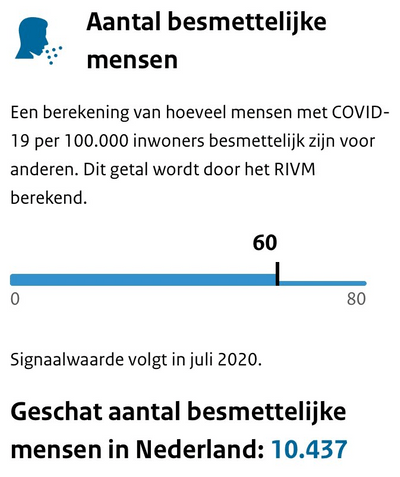
The number of infectious people ("Aantal besmettelijke mensen") per 100,000 inhabitants was on a 0-50 scale during July. As the estimated number of infectious people grew and shot past the 50, the scale was adjusted to 80, without any comment or explanation.
And, you saw it coming, on August 4th, as infections rose again, the scale was changed again to 100. Watch this space!
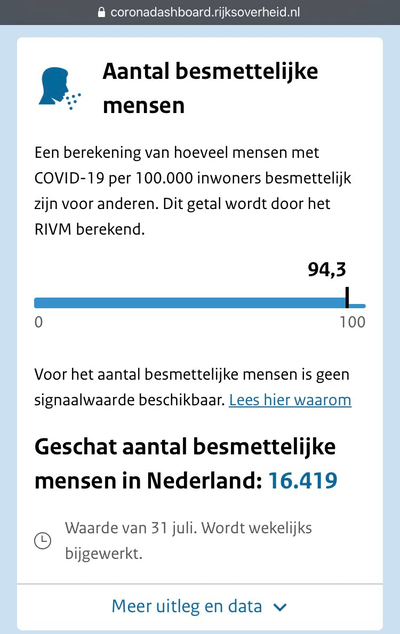
Fatal Error No. 37: A Public Health Secretary with a math problem
On August 12th 2020, during the plenary parliamentary debate on the Corona crisis, Public Health Minister Hugo de Jonge said "there was no exponential growth in recent weeks. Is has been more of a linear growth these past weeks". This is not true. Not as a matter of theory (only when the Reproduction Factor is exactly 1 for a sustained period of time can the growth be linear) but also as a matter of observation. Twitter researcher Innouveau listed the reported cases and shows that growth was, of course, exponential in Amsterdam, Rotterdam and nationwide.
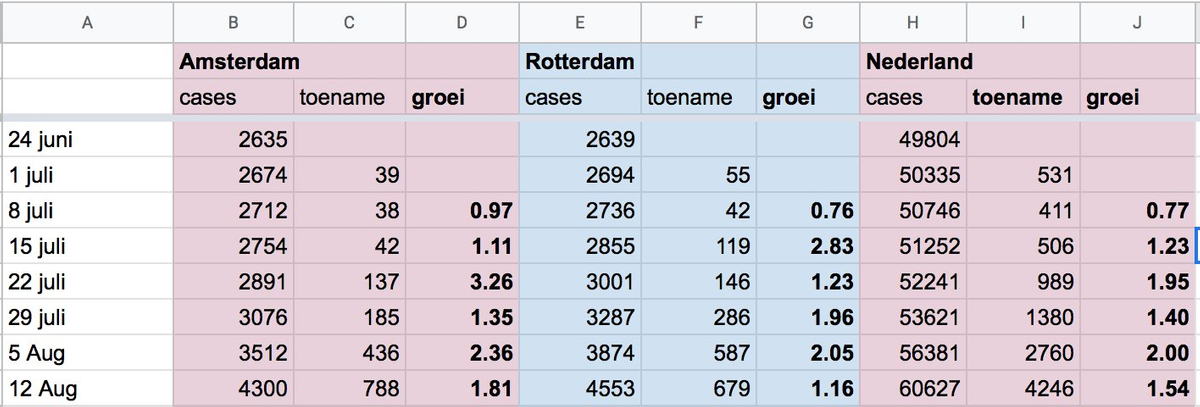
It is of course possible that Mr de Jonge is bad at math. Or maybe, as a former school director, he is perfectly up to date and was merely telling porkies to the public in a bid to avoid panic. You be the judge. In any case, Public Health Authority (GGD) Head Sjaak de Gouw also seems to have a lot of trouble understanding exponential growth. Interesting that is, since the GGDs were founded to combat epidemics which behave exponentially.
Scandal No. 38: Misleading claims about "shortages"
On August 28th, OMT member and microbiology head of Utrecht University Marc Bonten claimed testing machines and personnel was in short supply. The day before, RIVM told GGD Public Health Units to ration testing because of a claimed shortage of testing materials. But on the same day as Dr Bonten's claims, Public Health Minister Hugo de Jonge said teachers didn't need to get priority with testing because "there is no big shortage of tests". OMT member Jan Kluytmans went on a TV show to also talk about lack of tests internationally. The problem: there is no shortage of tests internationally. Or nationally, because multiple labs claimed on the same day that they have excess capacity. All is detailed in this file (in Dutch). Multiple OMT members came up with a talking point that is a lie. Why? Either to not have to scale up testing (expensive and anti-Herd Immunity) or to maintain control of testing within the OMT-run cartel.
This reminds us of earlier claims (also detailed above) of shortage of tests in the Spring, of contact tracing personnel (continuously) and of face masks and respirators (used regularly). There is no evidence any such claim was ever true. Whether the misleading statements are due to a need to cover up incompetence or to raise a haze of confusion and cover over a Herd Immunity plan that most people wouldn't accept or comply with, is left to the reader to judge.
Fishy Move No. 39. Ablism and lack of empathy from the Ministry
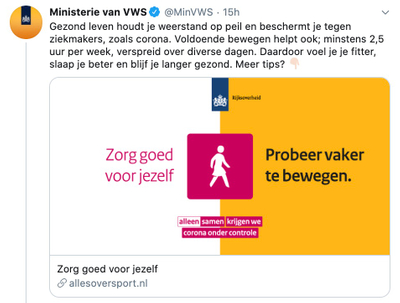
On August 29th 2020, the official Twitter account of the VWS Public Health Ministry tweeted "Healthy living maintains your resistance to disease and protects you from pathogens, including Corona. Adequate exercise is also helpful; at least 2.5 hours per week. You'll feel fitter, sleep better and stay healthy for longer. More tips?".
This tweet was not well received by people who can no longer exercise because of Covid, who could not walk even before Covid, and people who mind the suggestion that exercise actively protects against Covid. The tweet also is likely to be hurtful to the bereaved of Covid victims, who will not relish being told implicitly that their loved one died for being lazy.
Worse, the tweet suggests those who are infected are themselves to blame, which is unfortunate in the context of a controlled spread (herd immunity) strategy where the government is not doing all it can to prevent infections.
Scandal No. 40. Attorney General dismantles his Corona policy
On August 22nd 2020, Dutch Attorney General (Justice Minister) Ferd Grapperhaus got married. A week later, pictures surfaced in which can be seen that he and his guests did not maintain the legally required 1.5m distance. He was also seen shaking hands and hugging people outside of his household. With weddings being known virus spreading events, Dr Grapperhaus would be expected to know to be cautious, especially since his wedding was likely to attract some attention and because he is the figurehead of the 1.5m distance policy, which is basically the one corona control measure the Netherlands has and for which his department has handed out tens of thousands of fines and criminal records.
Within a few days, reports came in that police were shying away from handing out tickets for breaking the 1.5m rule: the behavior of the Attorney General directly undermined his own key policy. During the ensuing parliamentary debate and afterwards, it became clear that rules would be relaxed, to appease the police that is being put in a difficult enforcement position ("Maybe I was less than 1.5m away, but it was at least 2 Grapperhauses away, so you can't fine me!"). This would lead us to conclude that the enforcement rules are relaxed to prevent the AG from having to step down. Lives for power?
The columnist Peter Breedveld pointed out this affair isn't even a double legal standard for the powerful and the rest, that would be applying two different sets of rules. In this case, the rule is actually CHANGED to accommodate the powerful and allow them to stay in power.
Scandal No. 41. Slow vaccination
As Europe started vaccinating its population on December 27th 2020, the Netherlands waited. We even organized a relief effort to the central vaccine warehouse on January 4th with a huge freezer truck; our help was politely refused. The takeaways:
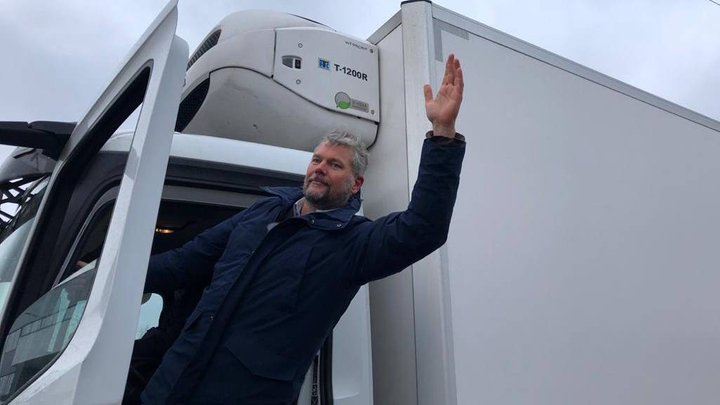
- Vaccination started way late, on January 8th and January 18th at large scale
- On January 21st, only 130,000 jabs had been given; hundreds of thousands lie in wait in warehouses
- Despite this, the government is planning to delay the second injection. This saves on vaccine, but that's not necessary in the Netherlands with the surplus. And it's very risky, an invitation for the virus to mutate
- The Government declined to buy additional vaccines offered to them.
We wrote a piece (in Dutch on this drama), which also goes into why this scandal is happening. The short answer is that the Government does not WANT to quickly vaccinate everyone. The long answer is that this has much to do with reliance on already acquired herd immunity (perhaps a third of the population), with the ideology that the non-vulnerable are invulnerable and so a waste of vaccine, and a bet on the AstraZeneca vaccine which is actually the less attractive one for reducing contagions and health risks.
Scandal No. 42. Vaccinating the strong
Contrary to almost any other country, the Netherlands is vaccinating its health care workers first, not the most vulnerable people in care homes. The Health Board recommended jabbing the most vulnerable first, the Government didn't listen, so in total the Health Board has reiterated its advice 4 times to make its point. To no avail.
Only on January 25th did the first healthy person in the 90+ category receive a vaccination. The Pfizer and Moderna mRNA vaccines have largely gone to the HCWs, but on January 25th it became clear that the AstraZeneca vaccine (slated for the elderly) doesn't work well on seniors. Which means mRNA vaccines have been wasted on perfectly healthy people, which according to the Government are invulnerable to the virus anyway and therefore are getting the jabs only for being well-organized and sympathetic.
With a "run rate" of perhaps 100 deaths per day, the delay and wrong prioritization may/will cause thousands of unnecessary deaths. Privately, the government would probably respond those people don't represent many QALYs anyway.
On February 5th, the Government ignored the (usually sort of mandatory recommendations) of the Health Council Gezondheidsraad, focused jabs on healthy productive people and injected over-55s with the AstraZeneca vaccine which is avoided in other countries for that group.
Scandal No. 43. Personal information sold to the highest bidder
On January 25th, RTL news announced that the GGD health authority had sold highly private personal data of millions of people which had been used for contact tracing and testing to commercial buyers. Some of them may be legitimate businesses, but this type of data is often used for identity fraud. For months, data buying companies had been targeting health authority employees. RTL had easily found multiple Whatsapp groups and forums where the data was being offered and traded. No adequate measures were taken by the GGD or the police to prevent the workers from responding to the requests and profiting from highly personal data, not in terms of procedures, nor in terms of data protection. The HP Zone Light system for contact tracing is used by a variety of organizations, the GGD can't exactly say which ones. The CoronIT system is used by 26,000 health authority and call center workers.
Experts have described this snafu, after Health Minister De Jonge tried to defend himself in Parliament which statements which maintained a respectable distance to the Truth, with words such as "true madness", "you couldn't even imagine such an export function", "basic IT hygiene not respected" and "completely unacceptable".
Please note that the two Dutch attempts to build a Corona App were met with widespread concern over privacy, concern that was part of the Government's rationale for taking its time. But maybe privacy wasn't such a big consideration after all.
Scandal No. 44. Lying in court
As part of the Safe Education court case of Containment Now/Stichting Protect EveryBody, the Government made multiple claims which were proven to be untrue:
- "Bavaria and Baden-Württemberg do not use masks in secondary schools" (they do, since October 2020).
- "The WHO does not recommend masks in class, only in certain circumstances" (the WHO does recommend masks unreservedly in class)
- "The decision to keep schools open without real defensive measures was based on Science" (we now know the government pushed the Outbreak Management Team Science/policy council to sign off on unprotected schools, even though many members of the OMT wanted safer education).
Of course, many other things the government said in the case, or outside of it, don't pass the test of scientific review, logic or consistency, but we cannot as yet prove they are lying when it comes to those specific statements.
Fishy Move No. 45: Awarding the Health Authority testing call center contract to a questionable company
The Health Ministry awarded the huge call testing appointment call center contract in May to Paris-based Teleperformance. This company has quite a bad reputation for employee safety in Covid times, employee privacy, and fair compensation. The start of the testing call center in early June was very chaotic, with long waiting times and unaccessible phone lines. Things did become well-organized over time, but in January it turned out sensitivie private testing data had been stolen and sold to the highest bidder (see Scandal No. 43). It is not yet clear if Teleperformance was involved.
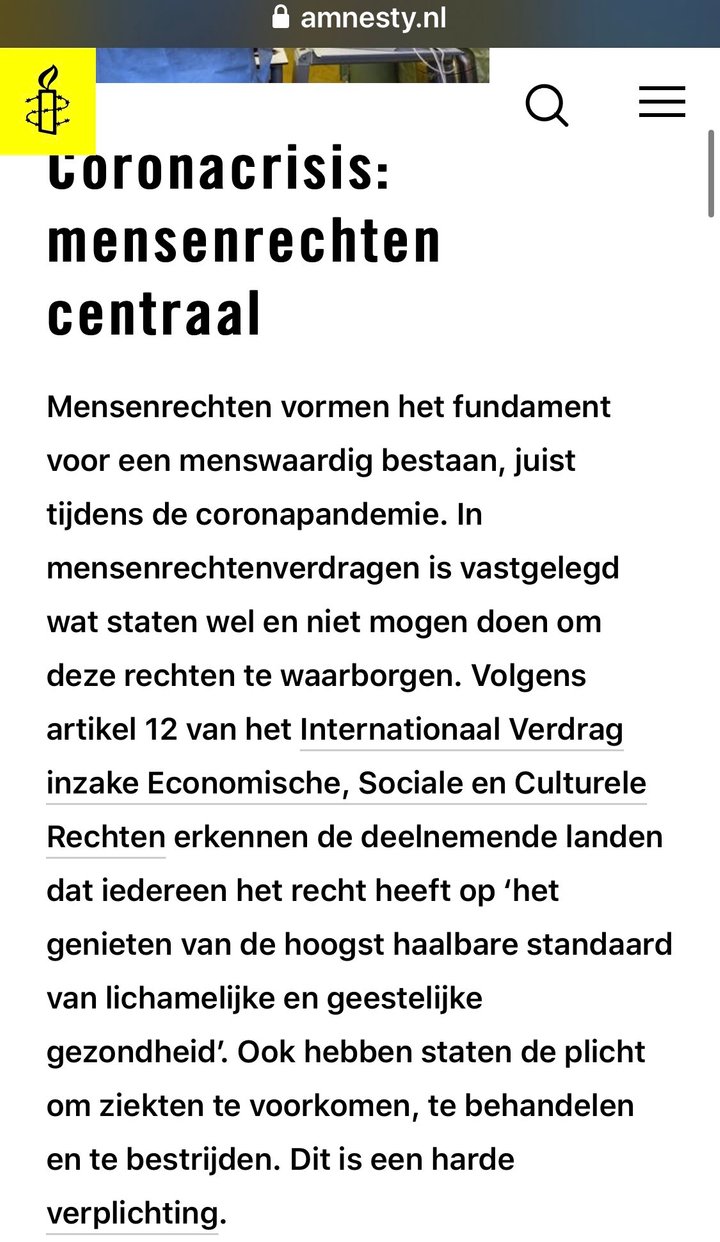
Scandal No. 46: Total silence from Human Rights organizations
Amnesty International has voiced its opposition to viral spread and herd immunity policies in other countries, but Amnesty Netherlands has always kept mum. This is despite the fact that human rights include family life, life, security, employment and whatnot, all of which are in danger with high amounts of viral circulation. In January 2021, Amnesty did mention on its website that citizens have the right to health and that this also applies to Corona. But not a specific word about the Dutch government's policies or alternatives. Why? Ask a journalist to investigate.
Scandal No. 47: Falsely informing Parliament on the contact tracing data leaks
Health Minister Hugo de Jonge had to admit on February 3rd that he said a lot of things that weren't true in the parliamentary debate a week before. In fact, when we listened to what De Jonge said during the debate it all felt detached from reality, logic and a sense of responsibility.
Saying what sounds good and is politically useful, rather than what is true, has become a habit for this Government.